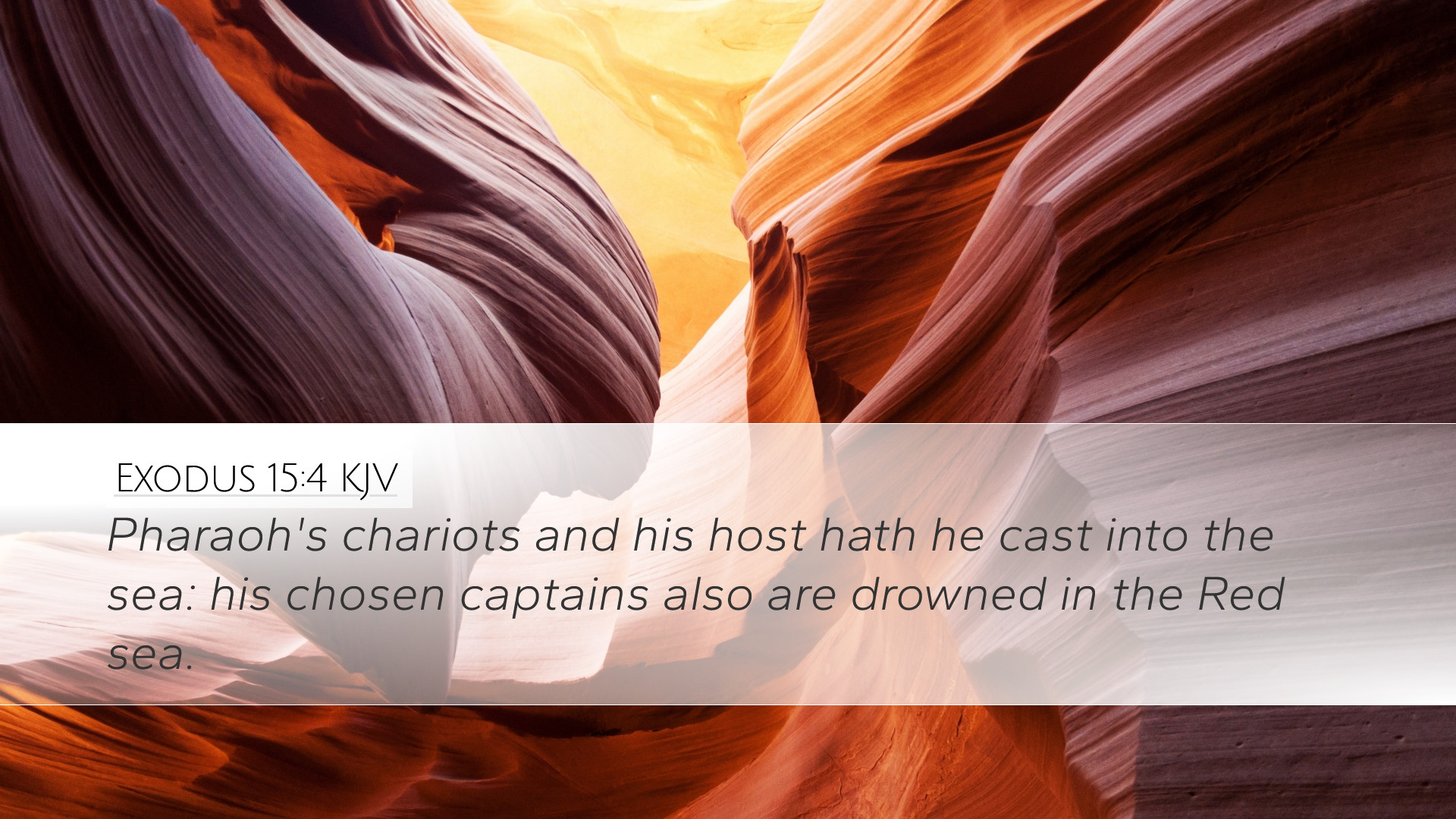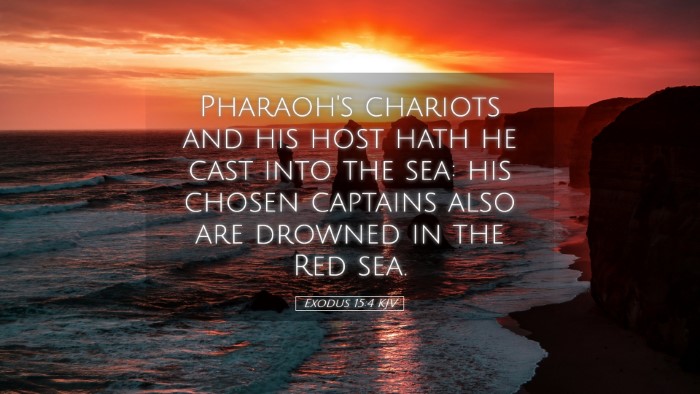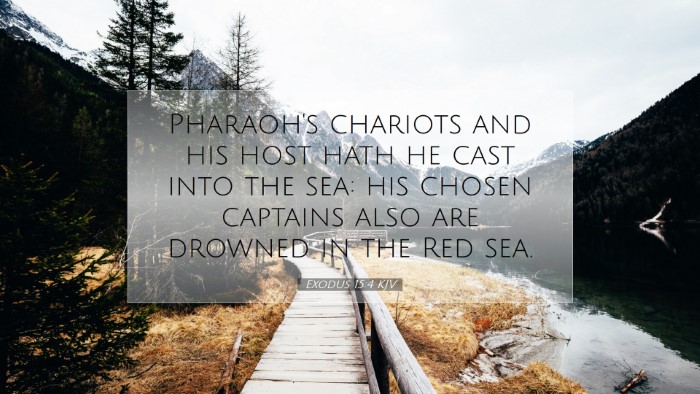Exodus 15:4 Commentary
Verse Text: "Pharaoh's chariots and his host hath He cast into the sea: his chosen captains also are drowned in the Red sea."
Introduction
This verse is part of the song of Moses, a triumphant expression of gratitude and praise following the miraculous deliverance of the Israelites from Egyptian bondage. It encapsulates the downfall of Pharaoh and his army at the Red Sea, showcasing God's sovereignty and might. Understanding this verse requires contemplation not only of its historical context but also its theological implications for believers today.
Contextual Background
The passage occurs in the aftermath of a significant victory for the Israelites, celebrating their liberation from slavery. Exodus 15 serves as a poetic rendering of the events that have unfolded, emphasizing God’s power over the oppressors.
Historical Context
- The Israelites were oppressed under Pharaoh’s reign, enduring a brutal captivity for decades.
- God raised Moses as a deliverer, leading to a series of plagues culminating in the Exodus.
- As they approached the Red Sea, God parted the waters, allowing the Israelites to cross safely.
- When Pharaoh pursued them, the waters returned, drowning his army—a pivotal act of divine judgment.
Commentary by Noted Theologians
Matthew Henry's Insight
Henry emphasizes the contrast between the Israelites’ liberation and the destructive fate of the Egyptians. He notes that this event serves not only as a historical account but as a display of God’s righteousness and judgment. The drowning of Pharaoh’s army exemplifies the principle that the enemies of God will ultimately face consequences for their rebellion against Him.
Albert Barnes' Perspective
Barnes elaborates on the significance of "Pharaoh's chariots and his host" being cast into the sea. He interprets this as a representation of the military might and oppression that stood against God’s people. The sea symbolizes both chaos and deliverance; while it brings judgment to the oppressors, it offers salvation to those who trust in God. Barnes emphasizes that this act demonstrated God's ultimate authority over nature, demonstrating He is the true deliverer.
Adam Clarke's Analysis
Clarke highlights the literary structure of this verse within the wider passage and the implications of the imagery used. He points out that the "chosen captains" represent the elite military leaders of Egypt, thus assuring that even the most powerful cannot withstand God's will. Clarke notes that this victory is an encouragement for believers to trust in God's power in the face of opposition and adversity, inspiring confidence in His steadfastness and ability to save.
Theological Implications
The drowning of Pharaoh’s army reveals deep theological truths about God’s character and His dealings with humanity.
- The Sovereignty of God: The verse declares unequivocally that God is sovereign over all forces, whether human or natural. His plans cannot be thwarted, making Him a reliable safety for those who follow Him.
- Judgment on the Wicked: It illustrates the inevitability of divine judgment upon those who oppose God. This serves as a warning that while God is patient and merciful, His justice will ultimately prevail.
- Deliverance and Salvation: The passage also affirms the theme of deliverance—God's willingness and ability to save His people from their enemies, reflecting the ultimate salvation found in Christ.
Application for Believers
For pastors and theologians, the message of Exodus 15:4 holds profound lessons for preaching and teaching. It underscores the importance of faithfulness amidst adversity, as God's people are reassured of His protection and deliverance.
- Encouragement in Trials: Believers are reminded to find strength and encouragement in God's past acts of deliverance, much like the Israelites did after crossing the Red Sea.
- Assurance of Divine Care: The narrative fosters trust that God will intervene in their lives, especially when they face trials or oppression.
- Call to Worship: The verse should inspire a response of worship, celebrating God's faithfulness through communal praise to remind the faithful of God’s past victories.
Conclusion
Exodus 15:4 poignantly encapsulates the themes of judgment, deliverance, and divine sovereignty. By studying the insights from revered commentaries, leaders and scholars can recognize the magnitude of God’s deliverances in history and their implications for today’s faith journey. As God’s people, we are called to reflect on these truths, encouraging one another and proclaiming His greatness in our lives.


